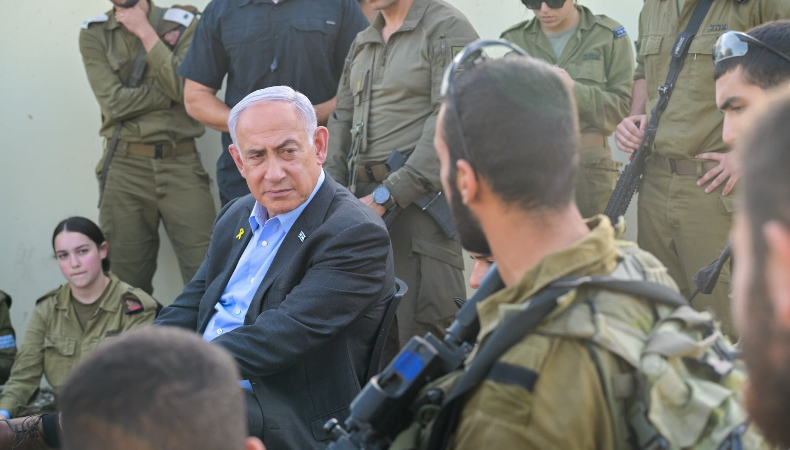Mounting Pressure on Israel Over Attacks on UN Peacekeepers in Southern Lebanon

Over recent occurrences involving UN personnel in southern Lebanon, tensions between Israel and the United Nations are building. These events coincide with mounting conflict between Israeli forces and Hezbollah as Israeli Prime Minister Benjamin Netanyahu restates his demand for UN troops to temporarily depart the region.
After many incidents whereby Israeli soldiers have fired on and harmed UN peacekeepers, the UN Security Council has expressed “strong concern”. Since Israel started its ground campaign on Hezbollah in Lebanon, five peacekeepers have apparently suffered injuries. Though they generate a lot of controversy, most of these strikes are thought to have originated with Israeli forces.
Israel’s Demand of Relocated Peacekeepers
Prime Minister Netanyahu has directed peacekeepers to flee the continuous ground invasion of Israel by heading at least three kilometers north. Netanyahu has maintained that the measure is required for their safety even if he expresses remorse for any damage done to the members of the United Nations Interim Force (UNIFIL). Strongly rejected by the UN, Israel has claimed Hezbollah hid their activities under cover of UNIFIL outposts.
UNIFIL has stated it will keep its stations along Lebanon’s southern border despite Netanyahu’s insistence. Especially in view of rising tensions, the peacekeeping operation is considered as absolutely crucial for maintaining international control and stability in the area.
The background and goals of UNIFIL
Originally established in 1978, UNIFIL saw Israel evacuate southern Lebanon following an invasion that year. Its mission was making sure extremist organizations stayed away from the Lebanese-Israeli border. Since the two nations have not formally settled their territorial conflicts, UNIFIL helped to build the 75-mile Blue Line separating Israel from Lebanon in 2000 acting essentially as a de facto boundary.
Thanks to funding from Italy, France, and Ireland among other 50 countries, UNIFIL presently employs more than 10,500 people. Italy offers about 1,000 troops among the top suppliers; the United Kingdom sends just one peacekeeper. Operating in southern Lebanon between the Blue Line and the Litani River, in a 410-square-mile area, these peacekeepers have a mandate recently renewed until August 2025 by the UN Security Council.
Stress Growing Between UNIFIL and Israel
Reports claim that Israeli tanks entered a UN base on Sunday, so the circumstances have lately been rather erratic. On Saturday, the sixth day of Israel’s military operation, a UN peacekeeper also got gunshot wounds. Often claiming—an allegation the UN strongly refutes—that Hezbollah fighters utilize UNIFIL’s facilities as cover, Netanyahu has
Chief of UN peacekeeping Jean- Pierre Lacroix said the UN does not intend to let its staff be dismissed in response to Israel’s requests for peacekeepers to transfer. Underlining that the forces will remain in their existing positions to offer international monitoring and stability in the battle region, UN Secretary-General António Guterres underscored.
Lacroix also said that the UN officially opposed the most recent attacks on peacekeepers to Israel. Lieutenant Colonel Nadav Shoshani of the Israeli Army admitted that Israel is trying to keep contact with UNIFIL and that any incident involving injuries to peacekeepers will be under great scrutiny.
Global Reaction and Concerns of Global Nature
Attacks on UNIFIL bases have elicited strong responses from officials outside. Monday night, the foreign ministers of France, Germany, Italy, and the United Kingdom released a joint statement expressing “deep concern” about the situation and denouncing the recent Israeli activities aimed against the peacekeeping force. Sending peacekeepers to UNIFIL, all of these countries—who assist the UN’s presence in southern Lebanon—have underlined the need of preserving it in order to avert future instability.
With the UN still keeping its neutrality in the issue, Netanyahu’s claims that UNIFIL is unintentionally “providing a human shield” for Hezbollah have further complicated everything. For decades, the peacekeepers have been essential for preserving peace between the two countries; their ongoing presence is considered as vitally necessary by the international community.
Safety of UN forces is a major concern, thus pressure on Israel and the UN is most likely to rise if Israel’s ground fight gets more aggressive. The world is intently observing how both parties manage these sensitive dynamics in the next weeks; the continuous battle between Israel and Hezbollah shows no signs of stopping.




